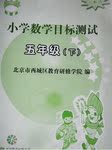题目内容
【题目】 China will follow up on its successful mission (任务) to the far side of the moon by sending a probe to Mars next year, one of its top space scientists said Sunday. Wu Weiren, chief designer of China’s lunar exploration program, said the red planet was the natural next step. “Next year we’ll launch a Mars probe to orbit around the Mars, land on it and probe it,” he said. China will also send another probe to take back samples from the moon’s surface.
Wu’s comments came as a Mars simulation(模拟) base opened in Qinghai’s Qaidam Basin. According to the state-run Global Times, while the red rocky area bears a strikingly similarity to Mars, it’s extremely difficult to simulate Mars due to its special natural features and hostile environment—low air pressure, strong radiation and frequent sandstorms, as well as vast differences in geography.
China didn’t send its first satellite into orbit until 1970, by which time America had already landed an astronaut on the moon, but it’s been catching up fast. Since 2003, China has sent six crews into space and two space labs into Earth’s orbit In 2013, China successfully landed a rover, Yutu 1, on the moon, becoming only the third country to do so.
Last December, China landed another probe and a rover, Yutu 2, on the far side of the moon. Progress has been slow going since then: due to the extreme conditions there, the rover often has to hibernate to preserve its capabilities for further exploration, Wu said. “The temperature there is minus 190 degrees Celsius, which all components and parts cannot stand. So we let it sleep for a while, making sure it can spend the night safely. A few days ago, it woke up automatically to work. We’ve gained lots of data in the past few days, and we're going to make the data known to the world,” Wu said.
【1】What’s China’s next step in its space exploration?
A.To get back a probe from Mars.
B.To probe Mars next year.
C.To land a rover on Mars successfully.
D.To open a Mars simulation base.
【2】Which does the underlined word “hostile” in Paragraph 2 probably mean?
A.Stable.B.Uncertain.
C.Unfavorable.D.Friendly.
【3】What can be learned from the last paragraph?
A.Yutu 2 often has to hibernate to save its energy.
B.The data from Yutu 2 is accessible to the world.
C.Progress has been steady in the past exploration.
D.Yutu 2 can survive the moon's extreme conditions.
【4】Which of the following has China achieved in exploring space?
A.Two space labs have been set up.
B.Six crews were sent into space in 2003.
C.Samples from the moon have been taken back.
D.China became the third to send a satellite to Earth’s orbit.
【答案】
【1】B
【2】C
【3】D
【4】A
【解析】
这是一篇说明文。文章主要说明了主要介绍了中国太空探索的发展及成就。
【1】细节理解题。根据第一段第一句China will follow up on its successful mission to the far side of the moon by sending a probe to Mars next year, one of its top space scientists said Sunday.(周日,中国一位顶级太空科学家表示,中国将继续其成功的月球背面探测任务,于明年向火星发射探测器。)可知中国太空探索的下一步是明年探测火星。故选B。
【2】词义猜测题。根据下文low air pressure, strong radiation and frequent sandstorms, as well as vast differences in geography.为列举火星上的不利环境,如低气压、强辐射和频繁的沙尘暴,以及巨大的地理差异等。故可推测划线单词意思为“不宜的;不利的”,故选C。
【3】推理判断题。根据最后一段中Progress has been slow going since then: due to the extreme conditions there, the rover often has to hibernate to preserve its capabilities for further exploration, 以及A few days ago, it woke up automatically to work. We’ve gained lots of data in the past few days, and we're going to make the data known to the world(几天前,它自动醒来工作。在过去的几天里,我们获得了大量的数据,我们将把这些数据公之于众。)可知“玉兔2号”可以在月球的极端条件下生存。故选D。
【4】细节理解题。根据第三段Since 2003, China has sent six crews into space and two space labs into Earth’s orbit(自2003年以来,中国已经将6名宇航员送入太空,并将两个太空实验室送入地球轨道。)可知中国在探索太空方面已经建立了两个太空实验室。故选A。

 目标测试系列答案
目标测试系列答案